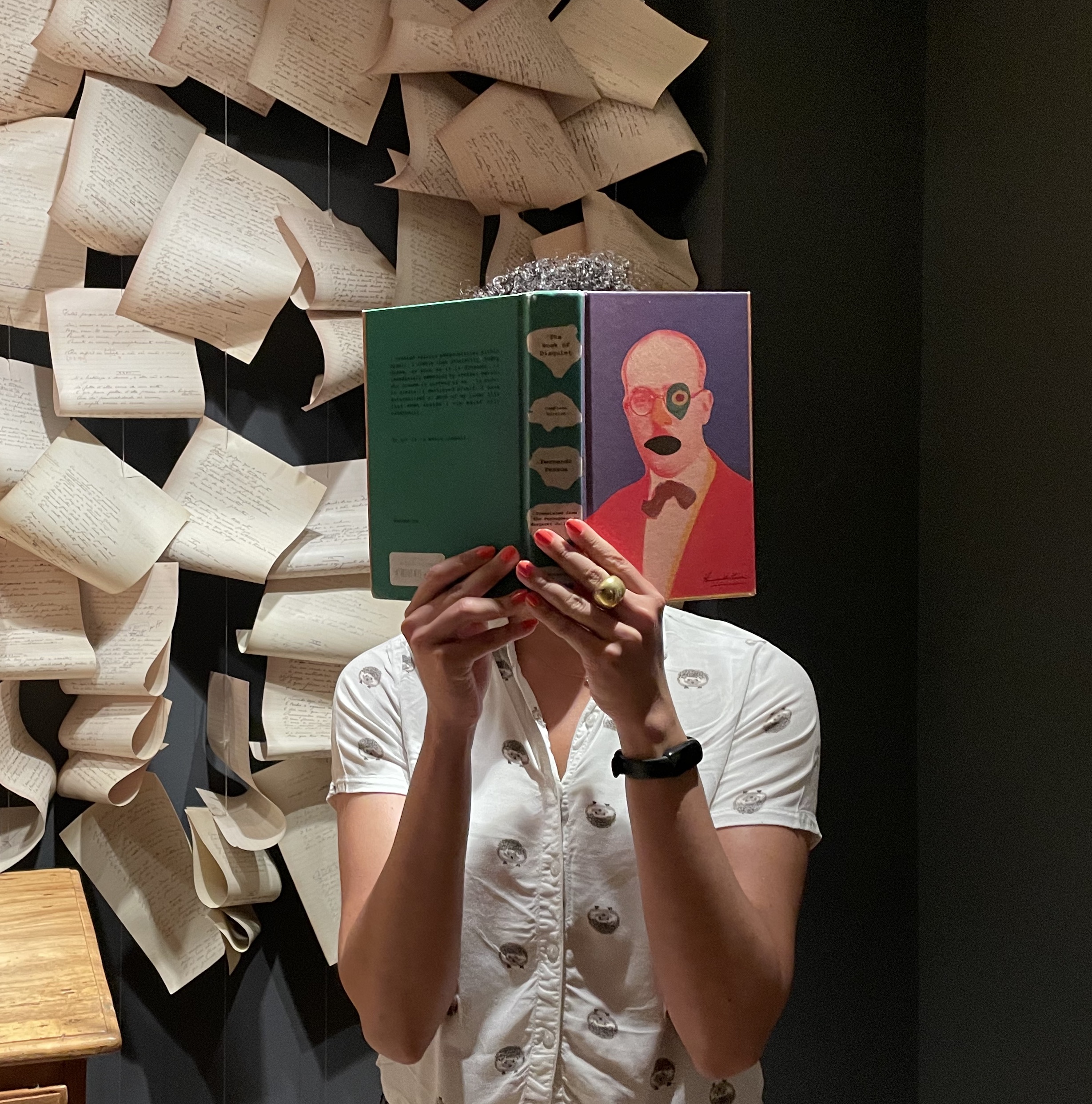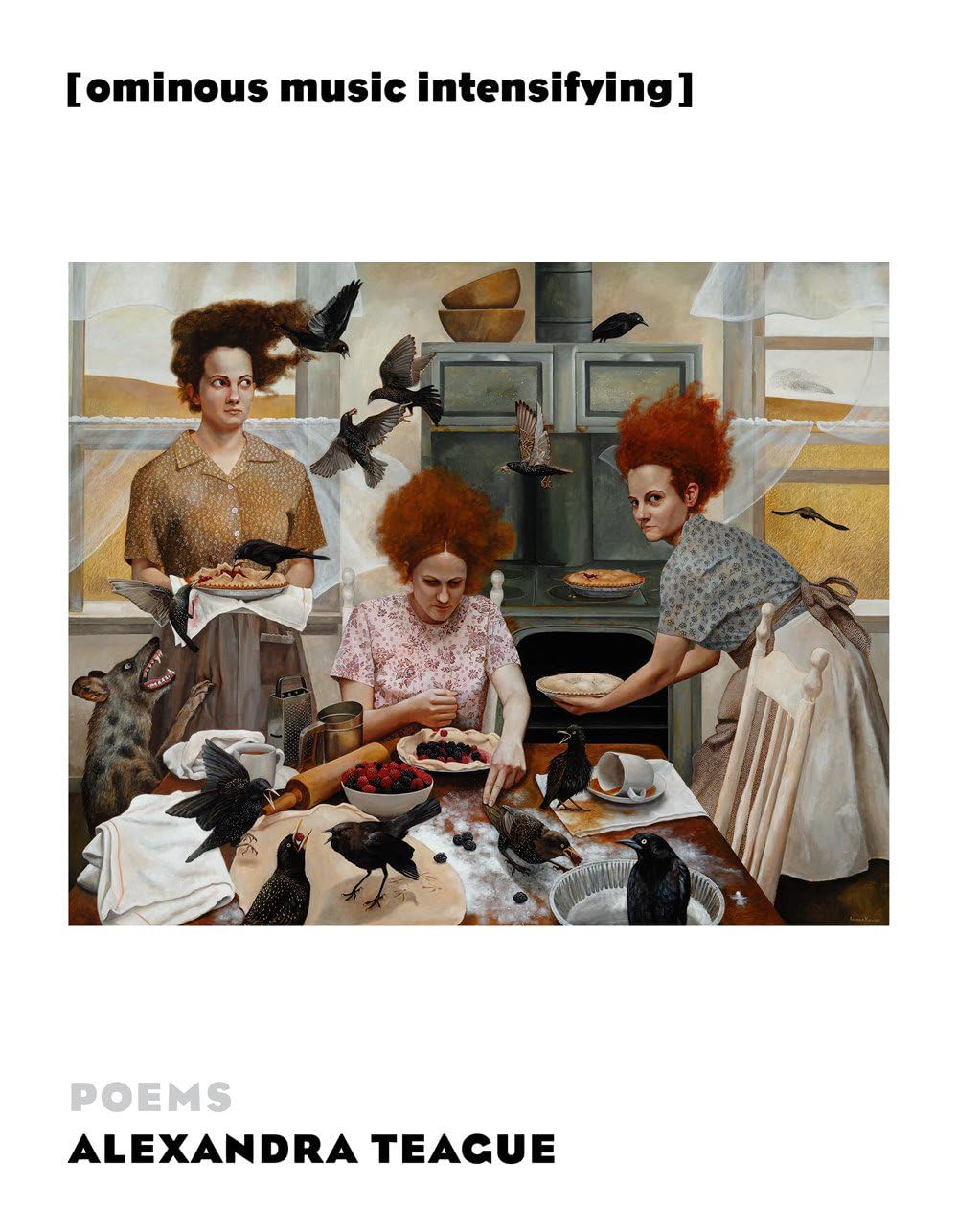Curated by SARAH WHELAN
Friday Reads is like a box of chocolates: there’s something for everyone, even the weirdos who read scripts! This month, sample an autobiographical novel, a collection of love poems, and a modernist play.
Recommendations: A Tale of Love and Darkness by Amos Oz, Oceanic by Aimee Nezhukumatathil, The Visit by Friedrich Dürrenmatt.
A Tale of Love and Darkness by Amos Oz; recommended by Christian Rogowski (G. Armour Craig Professor in Language and Literature In the Department of German at Amherst College)
How do you become who you are? Amos Oz was born in Jerusalem in 1939, so the stories told in this sprawling autobiographical novel closely mirror that of the state of Israel, shedding light on the diverse experiences of the people who came to populate the country. On over 500 densely printed pages, the narrator repeatedly takes the reader back to Eastern Central Europe, painting fragmentary and affectionate portraits of parents, grandparents, and other relatives and friends. They emerge as people traumatized by discrimination, persecution, and terror but also inspired by hopes and aspirations as those who came to the Holy Land in search of a better life. Although the primary impetus for writing this book derived from an effort to understand the circumstances that led to his mother’s suicide, Oz manages to lace his stories with a wry sense of humor. Bit by bit, he creates a complex mosaic of different strands of the Jewish experience. On his father’s side, originating from Lithuania, there are several generations of intellectuals, academics, and writers, some of whom became prominent figures in Israeli culture and politics. His mother, on the other hand, was born into a merchant family in a small Polish (now Ukranian) town, and as a female was burdened by unfulfilled emotional aspirations and intellectual ambitions. The novel is characterized by a tone of wistful acceptance of human foibles, as well as bemused empathy for idiosyncratic preoccupations. Zigzagging between the personal and the historical dimension, Oz’s multiple narratives ask a lot of the reader, who has to keep track of a whole host of vividly painted characters, a challenge that is amply rewarded by this deeply human, and humane, book.
Oceanic by Aimee Nezhukumatathil; recommended by Diana Babineau Owen (Managing Editor of Orion Magazine)
I am picky when it comes to love poems. I’ve found them to be notoriously difficult to write, and I often feel as though they don’t come across as genuine. But Aimee Nezhukumatathil’s new poetry collection, Oceanic, made me fall in love with love poems again. The first poem of her collection, “Self-Portrait as Scallop,” begins, “Let me see your shadow / feather across my hundred blue eyes.” And reading through this collection, I did indeed feel as though Nezhukumatathil turns many eyes towards everything from childhood memories to flights of imagination in which she considers the world from the perspective of something as small as a scallop or as big as a whale shark. She approaches her subjects with such care and clarity that it is hard to miss her love for the natural world, her husband-to-be, her children. And it’s impossible not to fall in love alongside her. Her surprising metaphors and oceanic imagery are not only masterfully crafted but truly delightful and full of wonder. Her “End-of-Summer Haibun,” for example, ends with this stunning haiku: ” the cool night before / star showers: so sticky so / warm so full of light.”
 The Visit by Friedrich Dürrenmatt; recommended by Sarah Whelan
The Visit by Friedrich Dürrenmatt; recommended by Sarah Whelan
As the daughter of a darkly comic English teacher, I am often the lucky recipient of her darkly comic reading suggestions. This March, my mom is teaching Friedrich Dürrenmatt’s play “The Visit,” so she sent me a copy and a note saying that she hoped I would enjoy it, and that I would refrain from becoming a murderer. So far, both of her wishes have come true.
Unfortunately, Dürrenmatt’s script suggests that despite my current moral standing, the temptations of money could one day lure me to kill. Published in 1956, the play focuses on the town of Guellen, a desperately impoverished community on the brink of salvation after a wealthy former resident returns to her hometown and offers a million dollars to the townspeople. The catch? She will only hand over her money if Mr. Ill, the citizen who previously wronged her, is killed. The ensuing drama is troublingly hilarious as the condemned man notices that his peers suddenly start buying luxury goods and rebuilding the town on credit, anticipating the pay out upon his death. The macabre improvements culminate when his daughter ends their final interaction with an, “Au revoir, papa,” a phrase she has learned in her new, expensive French lessons.
Chillingly, by structuring its townspeople as a Greek chorus, emphasis is removed from the identity of the literal murderer and placed on the complicit shoulders of every member of the town. Thus, every institution becomes implicated; the policeman who turns a blind eye, the entertainer who strangles Mr. Ill, and the medical professional who signs the death warrant.






